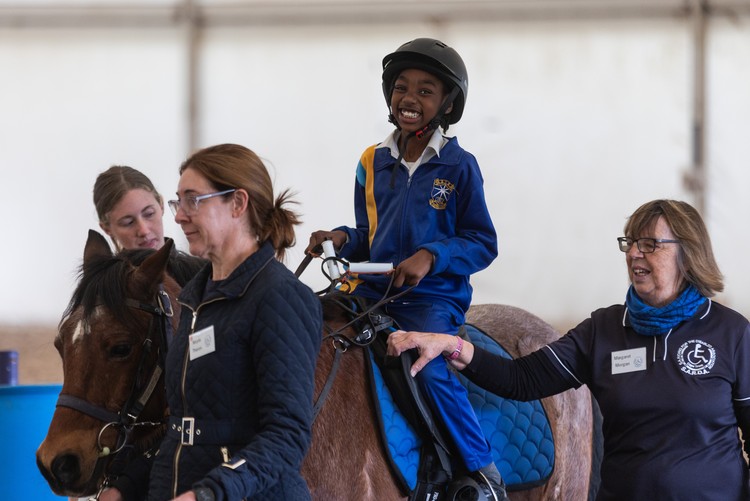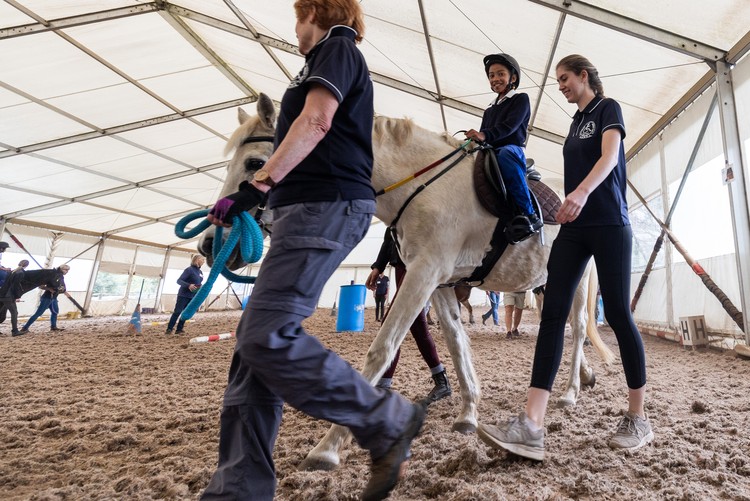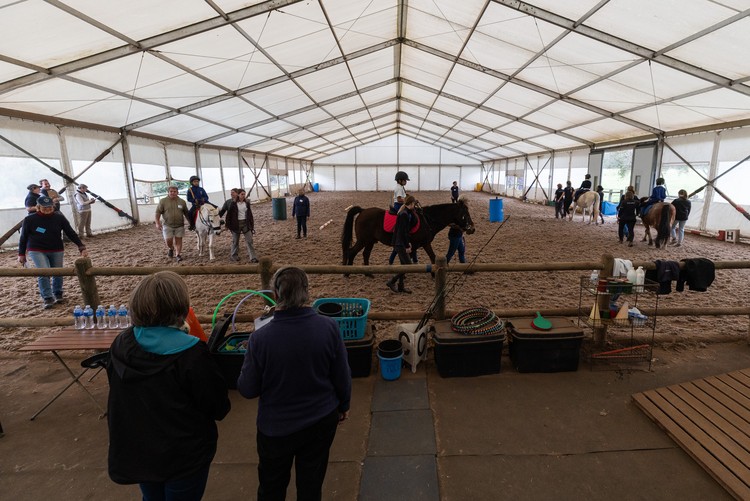In it for the ride: horses offer disabled children a new view of the world
SARDA has been bringing together children and horses for more than 50 years
Isabella Agaba, 9, who has cerebral palsy and a form of quadriplegia, enjoys a horse ride. Photos: Ashraf Hendricks
Being able to sit on a horse and look down at people, instead of looking up at them from a wheelchair: that’s the “brilliant” part of riding for disabled children, says Mel van der Spuy, physiotherapist at SA Riding for the Disabled (SARDA).
The children who come to SARDA are from 15 special needs schools, with intellectual challenges, such as autism, and physical challenges. Some have lost limbs due to gang violence. More than 150 children are currently taking riding classes and there is a waiting list.
SARDA was founded in 1973 by Joy Findlay and Belinda Sampson in Sampson’s backyard. After a short time in Philippi, the organisation moved to bigger premises in Constantia Valley in 1981, to accommodate demand.
Today, SARDA has 14 specially trained horses at its Constantia school and also has riding schools elsewhere in the country.
Public Relations and Office Manager Bee Lukey says nearly 10,00 people, mainly children, have come through the school. The therapy is free.
Hannelie Janse van Rensburg, occupational therapist at ASTRA Special School in Montevideo, says for the children at the school, many of whom are from Delft, Bonteheuwel, and Ceres, coming to SARDA is an experience.
“They stay in a low socio-economic environment. Most of them do not have fathers and many of them stay with foster-parents.”
“Just to come to SARDA, to go to the stables and greet the horses in the morning and to ride the horses, is such a tremendous boost for the kids.”
Before riding, each child is assessed by a medical practitioner.
The children are usually in the therapeutic riding classes for four years and often their condition changes over that time.
Claudia Van Wyk, 10, who has cerebral palsy diplegia, goes round the paddock.
SARDA is registered with the Department of Social Development as a public benefit organisation and raises money through donations and fundraising events such as tin collections and open gardens. The organisation has also received grants from the National Lotteries Commission.
The more than 100 trained volunteers play a crucial role. Two helpers walk beside each rider to make sure they are safe, and a third leads the horse. No-one has ever fallen off, says Lukey.
“It’s the psychological thing of being able to sit on a horse and look down at people for a change, not looking up from a wheelchair - that’s the brilliant part of it,” says van der Spuy.
SARDA physiotherapist Dawn Goodley says the classes are empowering for the learners who learn that they can ride a horse despite living with disabilities.
On the horse, they mimic the movement of walking. For some of the children with Cerebral Palsy Goodley says: “This is the first time that they’re actually going to have their muscles working properly.”
SARDA offers riding classes to more than 150 children from 15 special needs schools.
Support independent journalism
Donate using Payfast

Don't miss out on the latest news
We respect your privacy, and promise we won't spam you.
Next: Study shows how we can massively improve hypertension treatment
Previous: 50,000 people and only one ambulance
© 2025 GroundUp. This article is licensed under a Creative Commons Attribution-NoDerivatives 4.0 International License.
You may republish this article, so long as you credit the authors and GroundUp, and do not change the text. Please include a link back to the original article.
We put an invisible pixel in the article so that we can count traffic to republishers. All analytics tools are solely on our servers. We do not give our logs to any third party. Logs are deleted after two weeks. We do not use any IP address identifying information except to count regional traffic. We are solely interested in counting hits, not tracking users. If you republish, please do not delete the invisible pixel.



